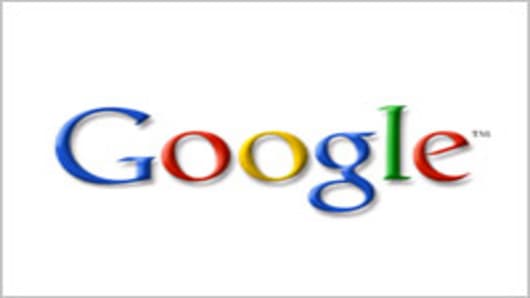So now it's Google's turn. Amazon's had them; same with Yahoo . Research in Motion has suffered its fair (or unfair?) share too.
But when Google's Gmail service went dark last night for about 90 minutes, cutting off millions of users from their email, it shone a bright light on the promise--and problems--of so-called Cloud Computing.
This is a big initiative by Google , and so many others in technology nowadays: Hewlett-Packard , Intel and Yahoo recently announced a Cloud Computing push. Dell is even trying to trademark the term "cloud computing," but even that's running into some jarring, regulatory bumps that might prevent the company from doing so.
For Google, Cloud Computing could be a big deal: the idea that all your information, personal data, digital entertainment, software applications, everything, is stored on a big network instead of, or maybe in addition to, the harddrive inside your own, personal computer. And then, of course, that (presumably) deeply protected and secure data would be accessible from any computer, anytime, anywhere. Very convenient.
Unless the network goes dark. I've written quite a bit about Cloud Computing, how it furthers the Sun Microsystems'co-founder Scott McNealy 1990s mantra of "the network is the computer." And if you believe all the big names mentioned previously, as well as Microsoft , Oracle , Salesforce.com , among so many others, that concept has finally arrived. Even Apple Inc.'s Steve Jobs subscribes to all this. Consider: The new MacBook Air has no on-board DVD player. Why bother if consumers will simply be wirelessly accessing digital entertainment from a huge, high-speed network, rather than downloading anything or fiddling around with--heaven forbid--actual, physical digital media like DVDs and CDs.
It all sounds good. But when the network fails, users are dead in the water. Sure your PC can crash, but you can reboot it yourself, or troubleshoot, or bring it in to someone who can fix it. With Cloud Computing, there but for the grace of, in this case, Google's IT experts go you. And the problems, because of the size of Google's network, could be monumental, which could leave you offline for a long time, even if the problem is an easy one to fix.
In this case, Google got itself righted in 90 minutes. Not bad. I mean, if your computer at home crashed, and you're running Microsoft's Vista, that's about equal to your reboot-time. All this merely points to the potential pitfalls of Cloud Computing. Nice buzzword, lots of promise, lots of potential rewards, but certainly not without problems, too.
Google's Marissa Mayer was recently on our air telling our Dennis Kneale that outages just can't happen because consumers use the same networks that Google uses to run its business. Um, yeah. Her second point was much better: it's not whether your network could go down; it's how fast you can bring it back up.
Questions? Comments? TechCheck@cnbc.com


